Attempts to unify the hardliner candidates have failed as Iran went to polls on Friday to elect a new president.
Despite the withdrawal of Alireza Zakani and Amirhossein Ghazizadeh Hashemi, the movement entered the election with two candidates: Mohammad Bagher Ghalibaf and Saeed Jalili.
In the last 48 hours, various methods were used to foster unity between the two remaining fundamentalist candidates, but none succeeded.
Consequently, the "revolutionaries" are proceeding to the 14th presidential election without consensus.
Efforts to form a consensus began immediately after the final election debate on Tuesday with suggestions to invite Ghalibaf and Jalili to negotiate.
Pressure peaked on Wednesday evening during a meeting in Mashhad attended by Esmail Qaani, the commander of the IRGC's Quds forces.
Unofficial reports claim that Jalili was urged to withdraw in favor of Ghalibaf to prevent vote splitting within the "Revolutionary Front."
Despite Jalili's campaign officials denying the meeting, a photo of Qaani on a return flight from Mashhad, shared by Ghalibaf's associates, suggests otherwise.
Additionally, Mohsen Rezaei attended this meeting, and reports emerged of implied support from Amir Ali Hajizadeh, the Quds Force's air force commander, for Ghalibaf.
Despite the IRGC's senior figures' open support for Ghalibaf, this involvement contradicts a 2014 resolution by the Expediency Discernment Council, which prohibits armed forces personnel from participating in elections.
This principle is reinforced by multiple quotes from Ruhollah Khomeini, the founder of the Islamic Republic, warning against military involvement in politics.
Ghalibaf has an extensive history with the IRGC; from his service at the age of 19 to his role in launching IRGC missile cities, coupled with his economic collaborations with the IRGC, particularly through Yas Holding, underscore his deep ties to the military establishment.
As Speaker of Parliament, Ghalibaf has continued to support the IRGC's economic interests, notably influencing significant financial decisions such as changing the Central Bank head to fund the Quds Force during President Ebrahim Raisi's administration.
The Quds Force-affiliated Sabreen News channel first reported that Hassan Nasrallah, the leader of Lebanon's Hezbollah, called Saeed Jalili and Mohammad Bagher Ghalibaf to broker a consensus between them, urging the former candidate to withdraw in favor of the latter.
Pro-Jalili media, including Rajanews, quickly denied this report, though other sources confirmed it.
A tweet by Mohammad Mehdi Hammet supporting the report was deleted an hour after it was posted.
Vahid Imani, a political program host for the Islamic Republic of Iran Radio and TV, mentioned on social media that Jalili rejected the consensus proposal, invoking memories of Qasem Soleimani.
Previously, a quote from Soleimani had been published opposing Jalili's presidential bid.
The Telegram channel supporting Ghalibaf confirmed Nasrallah's efforts, stating, "Unfortunately, Mr. Jalili's phone is switched off, and this mediation has been unsuccessful so far."
Despite these reports, Jalili's supporters widely shared images of his meetings with Nasrallah.
However, leveraging support from a non-Iranian figure like Nasrallah, the leader of a militia group, contradicts the country's electoral policy framework.
In a last-ditch effort to unify the "Revolutionary Front," fundamentalists held a meeting on the evening of June 28, just hours before the 14th presidential election began.
Two narratives emerged from the meeting: one claimed Jalili stated that new polls showed he would win outright in the first round, making withdrawal illogical; the other involved high-ranking officials urging Jalili to withdraw, which he declined.
With no agreement reached, both candidates engaged in aggressive campaigning and accusations, including claims of offering money to foreign media to publish false news about the rival's withdrawal.
In the end, video messages from both camps confirmed that their candidates would remain in the race.




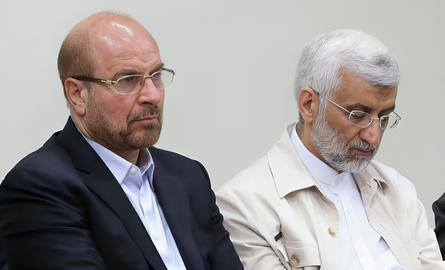
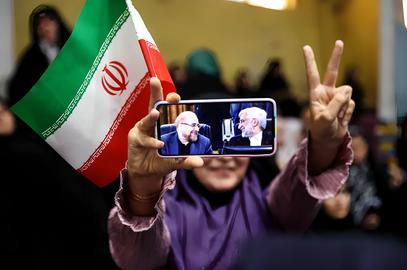













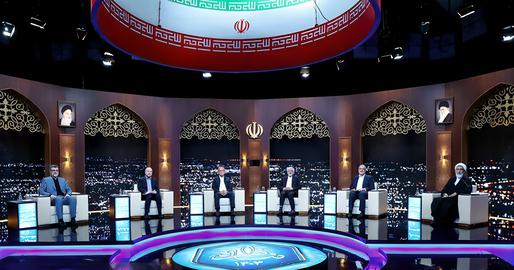
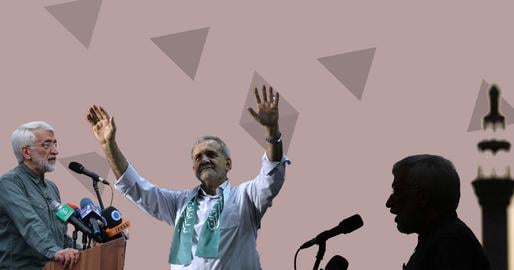
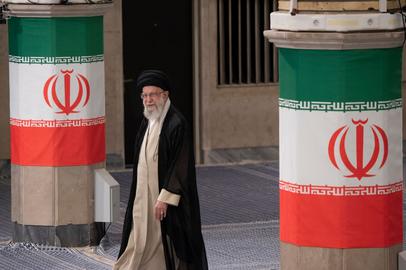

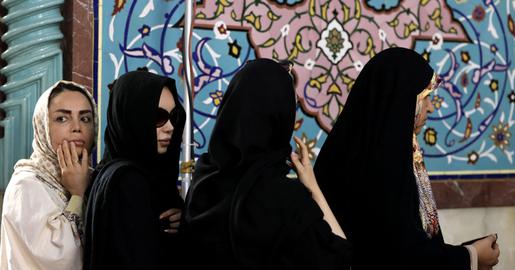



comments